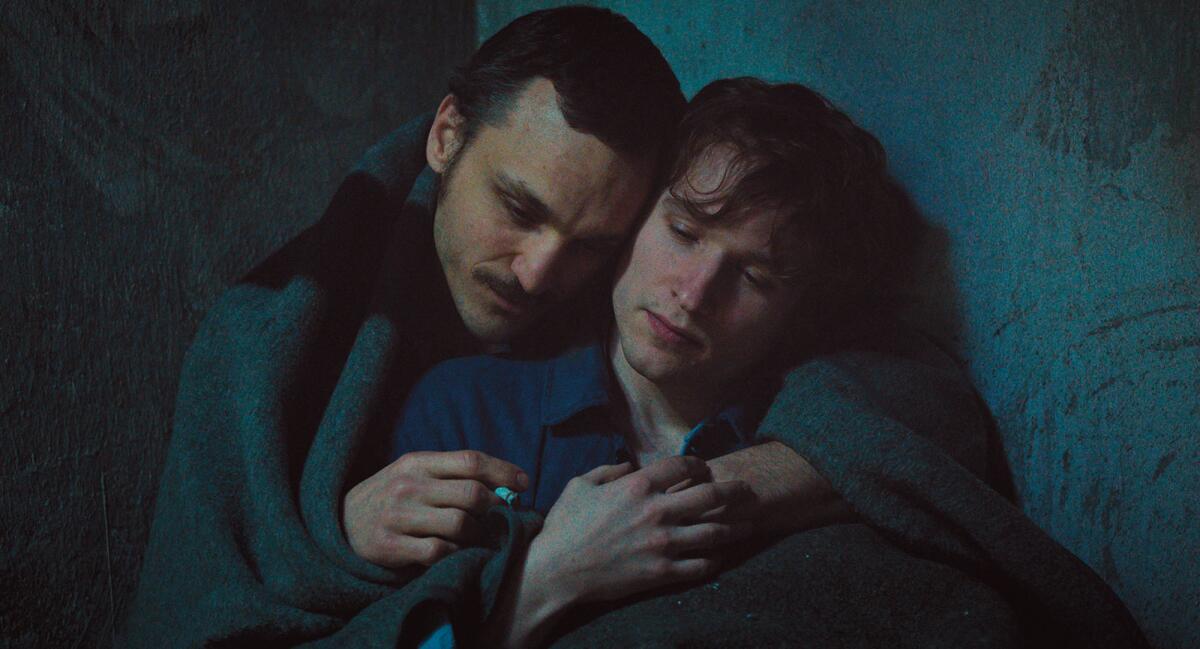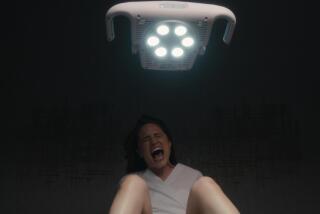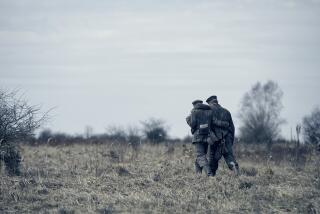Review: A persecuted gay man finds true liberation in beautifully bittersweet ‘Great Freedom’

A film that both treasures the life span of a lit match and respects the patience it takes to endure a prison term, “Great Freedom” makes an exquisite case for the impossibility of caging the heart, even when love itself is criminalized.
Austrian filmmaker Sebastian Meise’s ticking clock of a drama — regrettably missing from the Oscar nominees this year for international feature — crisscrosses the repeated imprisonments of a gay German man played by Franz Rogowski between the end of World War II and the emergence of a new gay outspokenness in the late ’60s. In that span of time, to be homosexual was to still feel shackled to the persecution nightmare of Hitler’s reign, because while the German penal code provision that jailed gay men — Paragraph 175 — was passed in 1871, and saw its most brutal prosecution during the Nazi years, it stayed on the books for decades after the war.
For your safety
The Times is committed to reviewing theatrical film releases during the COVID-19 pandemic. Because moviegoing carries risks during this time, we remind readers to follow health and safety guidelines as outlined by the CDC and local health officials.
It’s 1968 when we meet Hans (Rogowski), who looks unfazed at being tried and sentenced for having sex with men. We can sense his familiarity with life behind bars: He’s offhandedly acclimated to the processing exam routine, he’s a whiz on the prison sewing machines, and he knows one inmate — a burly convicted murderer named Viktor (Georg Friedrich) — well enough to have a teasing “miss me” exchange. He’s also ready to protect a handsome young schoolteacher (Anton von Lucke) he recognizes from the shabby public restroom where they were caught.
The particular kind of prison hard case Hans is, though, is signaled by the first flashback, which offers up the psychological window framing the whole movie’s portrait of identity and adaptation. When the narrative shifts to 1945 by way of a transition Meise uses throughout — confinement’s pitch-blackness — we find Hans a younger inmate yet scrawnier and sicklier, the mark of time spent in a concentration camp. When his cell door is opened to reveal an American soldier, we learn that Hans is not going free, however, but rather being sent to a jail to serve out the rest of his Paragraph 175 conviction.
That shocking reality for gay men from the camps — that the Allied liberation did not include them — is what spurred Meise and co-screenwriter Thomas Reider to write “Great Freedom.” But in lieu of some predictably miserable historical drama, they’ve crafted an unusually tender, even emboldening tale of resilience and love in a cold, dehumanizing space. In the attentive, textured camerawork of Crystel Fournier — images one might imagine earning the admiration of Jean Genet — the film spotlights Hans’ perseverance in countering institutionalized injustice with what his heart tells him to be, and what he needs to do to facilitate passion. (Hans’ manipulation of prison rules to conjure overnight “dates” is the closest I’ve seen a prison drama get to feeling romantic.)
The wiry, magnetic Rogowski — whose eyes are their own world — has already made a name for himself in compelling turns for Michael Haneke (“Happy End”) and Christian Petzold (“Transit,” “Undine”). Here he powerfully conveys 25 years of an ostracized, rebellious soul, someone whose sensitivity and desire are survival tools, not weaknesses — ways to always feel human. One of the film’s arcs is how he slowly breaks down Viktor’s homophobia over the years — a gentle campaign of caring that goes back to their meeting as cellmates in 1945 and that Friedrich’s portrayal matches in steeliness and vulnerability. Their scenes remind us why movies are so rich a storytelling art: We can see time collapsed into subtle, sometimes overt yet beautifully weighted gestures of connection, moments that gather in meaning.
When “Great Freedom” eventually depicts literal liberty, in the wake of Germany’s partial repealing of the law, Hans is confronted with what men like him sacrificed for, and Meise’s epilogue is believably bittersweet about that impact. But what resonates is being left seeing Hans the way he sees himself, why he could transcend the brutality of any unjust law: Life for him is not marked in prison sentences but in time spent nurturing love he knew was true freedom.
'Great Freedom'
In German with English subtitles
Not rated
Running time: 1 hour, 56 minutes
Playing: Starts March 11, Laemmle Royal, West Los Angeles; Laemmle Playhouse 7, Pasadena
More to Read
Only good movies
Get the Indie Focus newsletter, Mark Olsen's weekly guide to the world of cinema.
You may occasionally receive promotional content from the Los Angeles Times.










